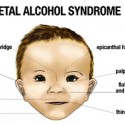Professionals Are Drinking The Working Classes Under The Table
Britain’s alcohol epidemic is being fuelled by stressed middle-class drinkers, it was revealed yesterday.
As figures showed drink-related deaths more than doubling since the early 1990s, research also revealed that white- collar workers are more likely to consume alcohol every day than the working classes.
Most admit their heaviest drinking is done at home, with larger wine glasses, stronger wine and cut-price supermarket deals all helping them to drown their sorrows. Figures, branded “shocking”, showed that one person an hour dies from drink-related issues.
The 9,031 alcohol-related deaths recorded in 2008 were up from 4,023 in 1992.
Shadow Health Secretary Andrew Lansley said: “These worrying figures are a sad indictment of our broken society and demonstrate Labour’s complete failure to tackle binge-drinking.”
The Government yesterday launched a campaign warning drinkers who believe they only take small amounts that they risk cancer, heart disease and strokes unless they cut down.
Latest statistics reveal people in managerial and professional jobs are drinking 13.8 units a week – the equivalent of four- and-a-half large glasses of wine – compared with 10.6 a week for those in manual jobs.
They were also more likely to have drunk alcohol on five or more days in the previous week than the working class.
The figures, from the Office for National Statistics, showed that 21 per cent of men and 14 per cent of women admitted drinking heavily – more than eight and six units respectively – on at least one day of the previous week.
Pensioners are among the heaviest drinkers, with one in five men and one in seven women aged 65 and older drinking every day compared with just one per cent of 16 to 24-year-olds.
Overall, 39 per cent of men and 31 per cent of women exceed the sensible drinking limit of three to four units a day for men and two to three for women.
The figures showed that 46 per cent of men and 57 per cent of women drank at home with 72 per cent of them buying drink from the supermarkets, which have been criticised for selling it cheaply.
Alcohol Concern’s chief executive Don Shenker said: “These deaths are tragic and avoidable. They are all the more shocking by the Government’s lack of action in tackling the cheap price of alcohol.
“Evidence shows cut-price booze, predominantly sold in supermarkets, is the main driver of increased drinking.”
A spokesman for the Department of Health said: “We are going to be looking closely at the increase in the number of alcohol-related deaths at a time when the amount people are drinking is reducing.”
But Chris Sorek of the charity Drinkaware said: “It is essential that we change people’s relationship with drink.”
source: Daily Express
